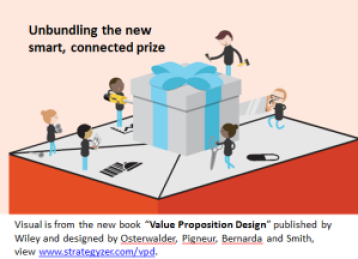 Recently I was reading that up to now, each digital technology change was a separate era but today we are facing something seemingly different, a collision, a proliferation of transitory moments.
Recently I was reading that up to now, each digital technology change was a separate era but today we are facing something seemingly different, a collision, a proliferation of transitory moments.
A whole mash-up of disparate technologies and systems, that seem to be heading for such an explosion of change, a post-digital transformation.
This merging of cloud, big data, social, and the internet of things is becoming the new system of discovery according to some. Others call it the crossroads where the post-digital reality of bringing together the cloud, mobile, interconnected devices, data analytics and embedded intelligence are pointing us to a hyper-connected world, less tomorrow, more speeding towards us in the here and now.
It is through people and things (IoT) we will get new innovation potential
Continue reading “The proliferation of transitory moments are ahead”

